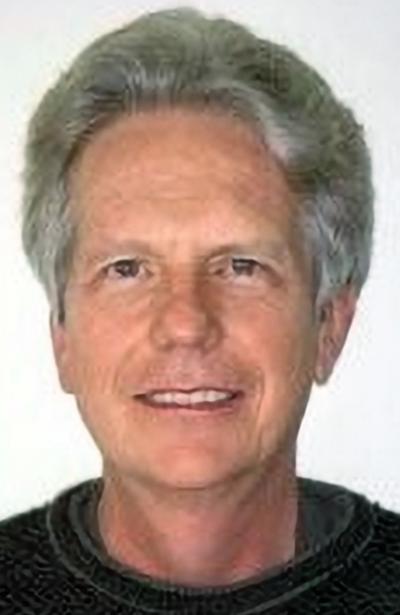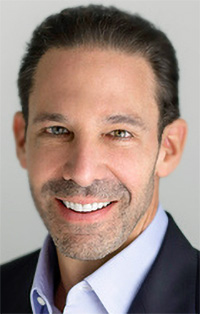

Domain Names |
Sponsored by |

|
 People are growing increasingly alarmed by recent examples of bad actors abusing proxy services offered by registrars. While proxy services are designed to protect the privacy of legitimate domain name users - they do the opposite when abused by cybercriminals. Responsible Proxy providers play a key role in mitigating abuse. When they don't act responsibly - it's clear they contribute to the problem.
People are growing increasingly alarmed by recent examples of bad actors abusing proxy services offered by registrars. While proxy services are designed to protect the privacy of legitimate domain name users - they do the opposite when abused by cybercriminals. Responsible Proxy providers play a key role in mitigating abuse. When they don't act responsibly - it's clear they contribute to the problem.
 The .ORG Stewardship Council is, in a lot of ways, a natural progression or evolution from our current PIR Advisory Council. The Advisory Council is made up of independent .ORG community members from around the world that provide advice to PIR on policy issues affecting them. The "AC," or the Advisory Council, has been a key part of PIR's work since its inception.
The .ORG Stewardship Council is, in a lot of ways, a natural progression or evolution from our current PIR Advisory Council. The Advisory Council is made up of independent .ORG community members from around the world that provide advice to PIR on policy issues affecting them. The "AC," or the Advisory Council, has been a key part of PIR's work since its inception.
 Since Ethos announced its investment in PIR last fall, Ethos has welcomed the opportunity to engage with .ORG registrants and users to hear their ideas and answer their questions. We listened to concerns expressed in the community, and we worked to address them. We announced a number of voluntary commitments that Ethos is prepared to make, and then we listened to feedback from the community on the scope of those commitments, as well as on the enforceability of those commitments.
Since Ethos announced its investment in PIR last fall, Ethos has welcomed the opportunity to engage with .ORG registrants and users to hear their ideas and answer their questions. We listened to concerns expressed in the community, and we worked to address them. We announced a number of voluntary commitments that Ethos is prepared to make, and then we listened to feedback from the community on the scope of those commitments, as well as on the enforceability of those commitments.
 As we reported in our Post-GDPR Compliance Rate retrospective in January 2020, registrar compliance rates in response to verified requests for redacted registrant information using the Appdetex WHOIS Requestor System was 25 percent. Our most recent report shows the compliance rate has increased to 27 percent, based upon a total of 243 requests for redacted WHOIS information sent to 68 registrars over the period starting January 1, 2020, through February 24, 2020.
As we reported in our Post-GDPR Compliance Rate retrospective in January 2020, registrar compliance rates in response to verified requests for redacted registrant information using the Appdetex WHOIS Requestor System was 25 percent. Our most recent report shows the compliance rate has increased to 27 percent, based upon a total of 243 requests for redacted WHOIS information sent to 68 registrars over the period starting January 1, 2020, through February 24, 2020.
 In direct response to the enormous interest and input we have seen from the .ORG community over the past several months, Ethos and Public Interest Registry (PIR) have made tremendous strides in laying out our collective vision for .ORG and put forth unprecedented commitments and protections for the .ORG community. Over the last two weeks, in particular, we have taken concrete actions to better align the community's interests with the operations of PIR and .ORG.
In direct response to the enormous interest and input we have seen from the .ORG community over the past several months, Ethos and Public Interest Registry (PIR) have made tremendous strides in laying out our collective vision for .ORG and put forth unprecedented commitments and protections for the .ORG community. Over the last two weeks, in particular, we have taken concrete actions to better align the community's interests with the operations of PIR and .ORG.
 Mr. Arif Ali, a lawyer with Dechert who is very familiar with ICANN governance and has represented numerous parties in ICANN related matters, wrote an extraordinarily detailed and comprehensive critique of the LOI and of Amendment 3. Mr. Ali noted that two of ICANN's most important obligations are to operate for the benefit of the Internet community as a whole and to enable competition and open entry in Internet-related markets, and that the proposed price hikes do not support these obligations...
Mr. Arif Ali, a lawyer with Dechert who is very familiar with ICANN governance and has represented numerous parties in ICANN related matters, wrote an extraordinarily detailed and comprehensive critique of the LOI and of Amendment 3. Mr. Ali noted that two of ICANN's most important obligations are to operate for the benefit of the Internet community as a whole and to enable competition and open entry in Internet-related markets, and that the proposed price hikes do not support these obligations...
 ICANN's call for Public Comment on Proposed Amendment 3 to the .com Registry Agreement yielded 9,040 public comments during the six-week comment period that ran from January 3, 2020 to February 14, 2020. The public response was amongst the most robust if not the most robust, that ICANN has ever received. To put this in context, the last several Public Comment periods received under 20 comments apiece.
ICANN's call for Public Comment on Proposed Amendment 3 to the .com Registry Agreement yielded 9,040 public comments during the six-week comment period that ran from January 3, 2020 to February 14, 2020. The public response was amongst the most robust if not the most robust, that ICANN has ever received. To put this in context, the last several Public Comment periods received under 20 comments apiece.
 The discussion about the future of the .ORG domain registry has been partly rooted in stewardship. Who will guide the Public Interest Registry (PIR) so it continues to serve the .ORG community? For those of us at Ethos Capital, the company acquiring PIR, this has been a central focus. We understand that owning PIR makes us stewards of an essential part of the fabric of the Internet.
The discussion about the future of the .ORG domain registry has been partly rooted in stewardship. Who will guide the Public Interest Registry (PIR) so it continues to serve the .ORG community? For those of us at Ethos Capital, the company acquiring PIR, this has been a central focus. We understand that owning PIR makes us stewards of an essential part of the fabric of the Internet.
 On February 11th, Professor Ben Leff of American University Washington College of Law (WCL) spoke on the panel: The Controversial Sale of the .ORG Registry: The Conversation We Should be Having as a scholar of charitable and nonprofit law. On February 21st, he posted a blog piece on WCL's PIJIP blog outlining and expanding his presentation. With Professor Leff's permission, I repost his piece on CircleID to join the timely discussion taking place here on the .ORG sale.
On February 11th, Professor Ben Leff of American University Washington College of Law (WCL) spoke on the panel: The Controversial Sale of the .ORG Registry: The Conversation We Should be Having as a scholar of charitable and nonprofit law. On February 21st, he posted a blog piece on WCL's PIJIP blog outlining and expanding his presentation. With Professor Leff's permission, I repost his piece on CircleID to join the timely discussion taking place here on the .ORG sale.
 Last fall, when we put forth our bid to acquire the Public Interest Registry (PIR), our announcement - made jointly with PIR and its parent, the Internet Society - was met with questions. We took them seriously and made a conscious effort to engage with representative members of the .ORG community to deepen our understanding. We found that a consistent message was that the commitments made by Ethos since this fall addressed most of the community's issues, but there was a question as to whether they were enforceable and if so, how?
Last fall, when we put forth our bid to acquire the Public Interest Registry (PIR), our announcement - made jointly with PIR and its parent, the Internet Society - was met with questions. We took them seriously and made a conscious effort to engage with representative members of the .ORG community to deepen our understanding. We found that a consistent message was that the commitments made by Ethos since this fall addressed most of the community's issues, but there was a question as to whether they were enforceable and if so, how?